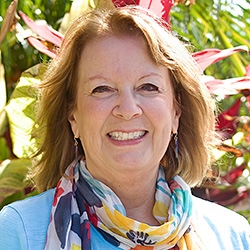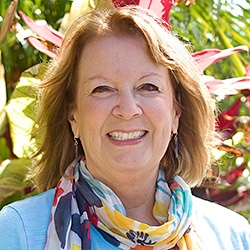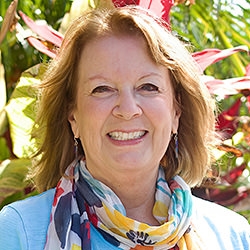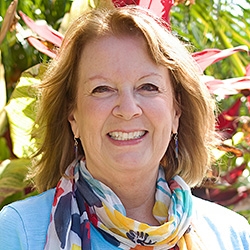
Search Results: blame
-
The less blame and criticism, the easier it is for others to hear us. From this perspective, it’s in our best interest to come from curiosity and care. This way differences can bring us together and help us know one another. The more mutual understanding, the easier it is to work together and find creative solutions. Read on for more on this, with a story about how a black man inspired 200 members of the KKK to leave the organization.
-
Trainer tip: Beware that your expression of feelings helps you own how you feel, rather than blaming the other person for doing something you see as wrong. Expressing your feelings helps the other person know how deeply this issue affects you. Plus it can bring more clarity and connection to all parties. Read on for more.
-
Here are 14 more key differentiations that are not, at time of publishing this, on the CNVC key differentiations list. They can be used to support people who are on the path of learning and integrating NVC in making sense of their own understanding of their journey and where they are within it. And it can be used to support people who share NVC with others in offering brief information in support of understanding and learning.
-
Trainer Tip: It can be more productive and satisfying to focus on what we want than on what we don’t have or don’t like. What will help rectify the situation? What would you like someone to do now or next time? This can eliminate much of the emotional pain caused by berating yourself or others. The moment your focus is on what is wrong with your life or what's lacking, take a moment to shift it to what you want.
-
Trainer Tip: When we express frustration without blaming others and by clarifying our own needs and requests, we diminish the possibility of hurt feelings and separation in our relationships. So next time you feel very agitated or angry, rather than implying the other person is wrong or at fault, try the following: own your feelings, make a specific request, and rather than implying they need to give up their needs focus on your needs.
-
Many of us blame other people for our feelings but our own state of needs is the true cause. In this powerful audio, Sylvia teaches you how to manage your emotions in challenging situations and demonstrates the process of Screaming in Giraffe.
-
Ask the Trainer: An NVC Academy member from Bosnia asks: "Is the NVC process truly effective in places where so much violence has occurred and people's pain is very deep?"
-
In this compelling interview with Liv Larsson, CNVC Certified Trainer from Sweden, the NVC concept of enemy images — how they develop, what they represent and how they affect our relationships with others and self — is explored.
-
In this recorded telecourse, John Kinyon, world renowned CNVC Certified Trainer, guides you through processes to strengthen your capacity for mindful presence and awareness of your thinking, and to develop the skills to translate thoughts into observations.
-
CNVC Certified Trainer Arnina Kashtan talks about what she calls "witnessing humanity," touching on the gift of presence, empathy vs. identification and staying present in the face of intensity.
-
Listen to this captivating story by Leo Sofer. A strong blacksmith comes to the aid of a little girl when she needs protecting. But can he protect her from the harsh words she speaks to herself inside her head?
-
This holiday, shift your focus from what disappoints you to the true whisperings of your heart. Compassion is an inside-outside process. In this telecourse recording, you will experience four simple tools for savoring your own precious needs, allowing you to experience greater compassion and harmony this holiday.
-
Listen as Liv shares her experience of mediating conflict between two groups: using NVC to ascertain the needs of both sides, raise awareness, and diminish polarization.
-
When someone's in immense pain and uses words that are hard to hear, see if you can bring in as much attention and compassion as you would to someone who was cut with a sword. Focusing on what's important to them, and not so much on how it was said. This may support greater understanding and healing. Otherwise, we risk prioritizing needs, norms, and inequities of the dominant culture, over caring for people who bear the invisible brunt of such norms.
-
Being self-responsible is about empowerment — via noticing what is potentially in our locus of control, getting to know ourselves better, looking at our own role in how we experience life, and making conscious choices to act within our own power. This requires us to be mindful in relating our stories to our needs. Read on for more on this, and the various pifalls within thinking about self responsibility.
-
Tolerating reactivity, name-calling, blaming, guilt-tripping, or stonewalling can lead to resentment and hurt. Plus, the more you stay in a reactive dynamic, the more you are likely to reinforce the pattern. Setting life-serving boundaries around reactivity is about letting another know that you aren’t going to participate in that kinds of dynamics. This means knowing what helps with handling difficulties and asking for that.
-
If we are to transform the existing social order, and shift to a mode of liberation for all, we'll need to look at our own participation in it. This includes how much we are able to focus on keeping our hearts open; speak to impact without attributing intention; and retain a humility that includes our systemic context. Read on for "how to" when we are in a position of less power.
-
For us to have a more peaceful world and relationships, growing our skills to engage interdependently is key. An interdependence-oriented person may choose to attend to both inner factors and outer factors that affect their own and others' experiences. Unfortunately, this is likely to be misunderstood by independence-oriented people as enmeshment -- and this is where conflict emerges. Read on for more.
-
Anger can bring in judgment and blame. Instead, use anger and frustration to identify what’s important and express what matters to you in a collaborative way.
-
It may be challenging to hear or make requests when you feel shame regarding anyone's feelings and needs. Without support, shame could be debilitating, so you may feel resistant and become defensive, hear threat, or criticize others. Instead, be with people who allow space for vulnerability. Find ways to celebrate, negotiate, be mindful, accepting, and creative.





















